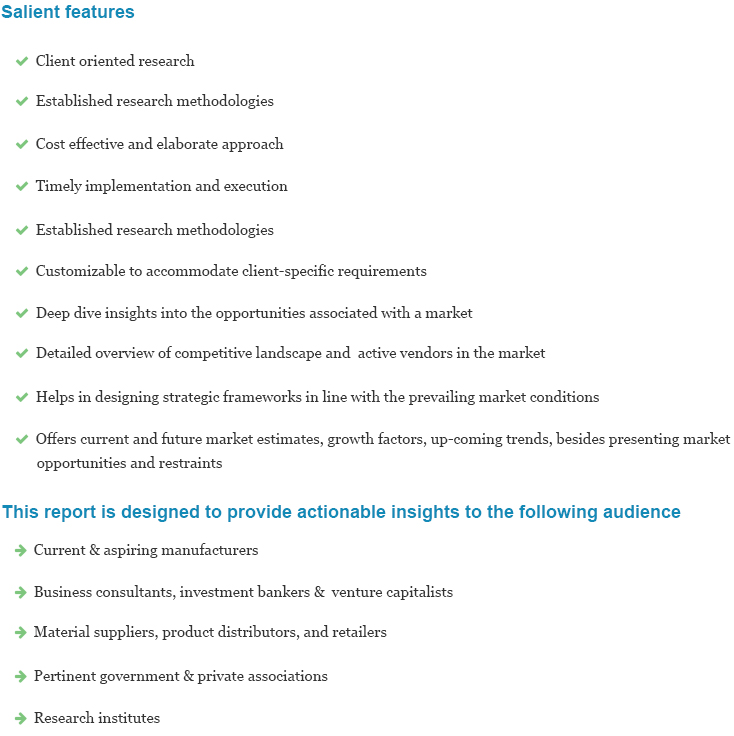
Zeolite Molecular Sieve Market Size By Application (Catalysts, Detergents), Industry Analysis Report, Regional Outlook (U.S., Russia, Turkey, India, China, Qatar), Application Potential, Price Trends, Competitive Market Share & Forecast, 2016 - 2024
- Published: April, 2015
- Format: Electronic (PDF)
- Number of pages: 82
- Industry: Catalysts & Enzymes
The Global Zeolite Molecular Sieve market is expected to grow at a CAGR of above 7% over the forecast period of 2016 to 2024. Zeolite molecular sieve is naturally and synthetically produced adsorbent & catalyst, particularly used for up-take of water or other species. It is used to dry, purify and separate liquids and gases owing to high adsorption efficiency.
Zeolite is utilized in number of applications including catalysts, adsorbents, and detergent builders. Zeolites are the most universally applicable adsorbents in the process industries and are gaining popularity as cooling agents in refrigeration adsorption systems. These systems make use of refrigerants that do not emit harmful Chlorofluorocarbons (CFCs). The growing need of refrigeration system is expected to augment demand for zeolite-based adsorption refrigeration systems over the forecast period. Also, Crystal structure and adsorption properties of Zeolites lead to regenerative process for repeated use in commercial applications.
In 2015, Europe was the dominant market owing to the production of bio-based chemicals, removal of nuclear wastes and ample of production in Russia and Turkey. Moreover, application in purification & drying of gases and wastewater treatment is expected to boost market in Europe over the forecast period. On account of growing infrastructure in China, India, Indonesia, and other South Asian countries, Asia Pacific market is expected to witness indicative growth over the forecast period.
Zeolite acts as an excellent adsorber, as a consequence they are employed into existing dryer and simple adsorber systems. Natural availability made zeolites to economically manufacture in commercially useful forms without hampering their adsorption properties. Various industries prefer drying by adsorption owing to its ability to produce a much drier gas or liquid than other methods. Zeolites are widely used for extremely dryer streams.
Zeolite molecular sieve have to undergo several tests to determine product quality from crystallization to final firing such as x-ray diffraction, adsorption quality, crush strength, density and particle size. Quality control techniques and adherence to ISO standards regulated by the government are major hurdles to meet the production requirement for the market.
Zeolites are gaining popularity as a substitute for sodium tripolyphosphates. Usage of phosphates in detergent reduces water quality owing to which several governments have restricted use of Phosphates. Zeolite-A maintains softness for wash water and maximizes building efficiency, an eco-friendly alternative to sodium tripolyphosphates. Being efficient builders for detergents, market is expected to experience boost in demand in coming years.
The market is segmented based on properties, occurrence and industry.
On the basis of properties, market offers Zeolite 3A, 4A and 5A molecular sieve. Molecular sieve 3A absorbs molecules having pore diameter of less than three angstroms. Molecular sieve 4A is preferred adsorbent for static dehydration in a closed gas or liquid system. Molecular sieve 5A is basically used to separate hydrocarbons through selective adsorption process.
Zeolites are obtained naturally or artificially. Naturally, they are found in mines by conventional open-pit mining. China and Cuba are the largest producers of natural zeolites followed by South Korea, Japan, Jordan and Turkey. Artificially, they are obtained by a process of slow crystallization from silica-alumina gel.
On the basis of industry, it is used in petrochemical industries as a catalyst for separation of impurities in unprocessed crude oil. . For commercial & domestic use, detergent is the largest single user of zeolites in the global laundry detergent market. Zeolites can effectively trap & separate nuclear ions and are used efficiently to remove nuclear waste from fission products in nuclear industry.
Zeolite Molecular sieve are now utilized as a raw material for ceramic composition relevant to the electronic industry. They are also used as a low k direct material for microprocessors. Molecular sieve as a functional powder is expected to have large scale application in odor removal, as plastic additives and in composites.
Synthetically prepared zeolite became the largest user worldwide as a replacement for phosphate in detergents. In nuclear industry, zeolites are used to separate nuclear wastes from fission products. A wide application of molecular sieves in petrochemical industry has evolved owing to growth in refining applications where zeolite is used as a catalyst. In medical equipment industry, adsorption of nitrogen from compressed air to obtain oxygen purity up to 95% is a vital application of zeolite.
Zeolite suppliers are fragmented based upon their occurrence naturally or synthetically. Naturally mined vendors include Apostolico & tanagro, Bear River zeolite, Minera formas, natural zeolite, prately perlite mining co. and Teague mineral products. Synthetically produced zeolite vendors include Tricat, UOP, W.R grace, Zeochem AG, ZEOX Corporation, CECA adsorbents and Chemiewerk Bad kostritz GmbH.

Choose License Type
- World's largest premium report database
- Transparent pre & post sale customer engagement model
- Unparalleled flexibility in terms of rendering services
- Safe & secure web experience
- 24*5 Research support service
